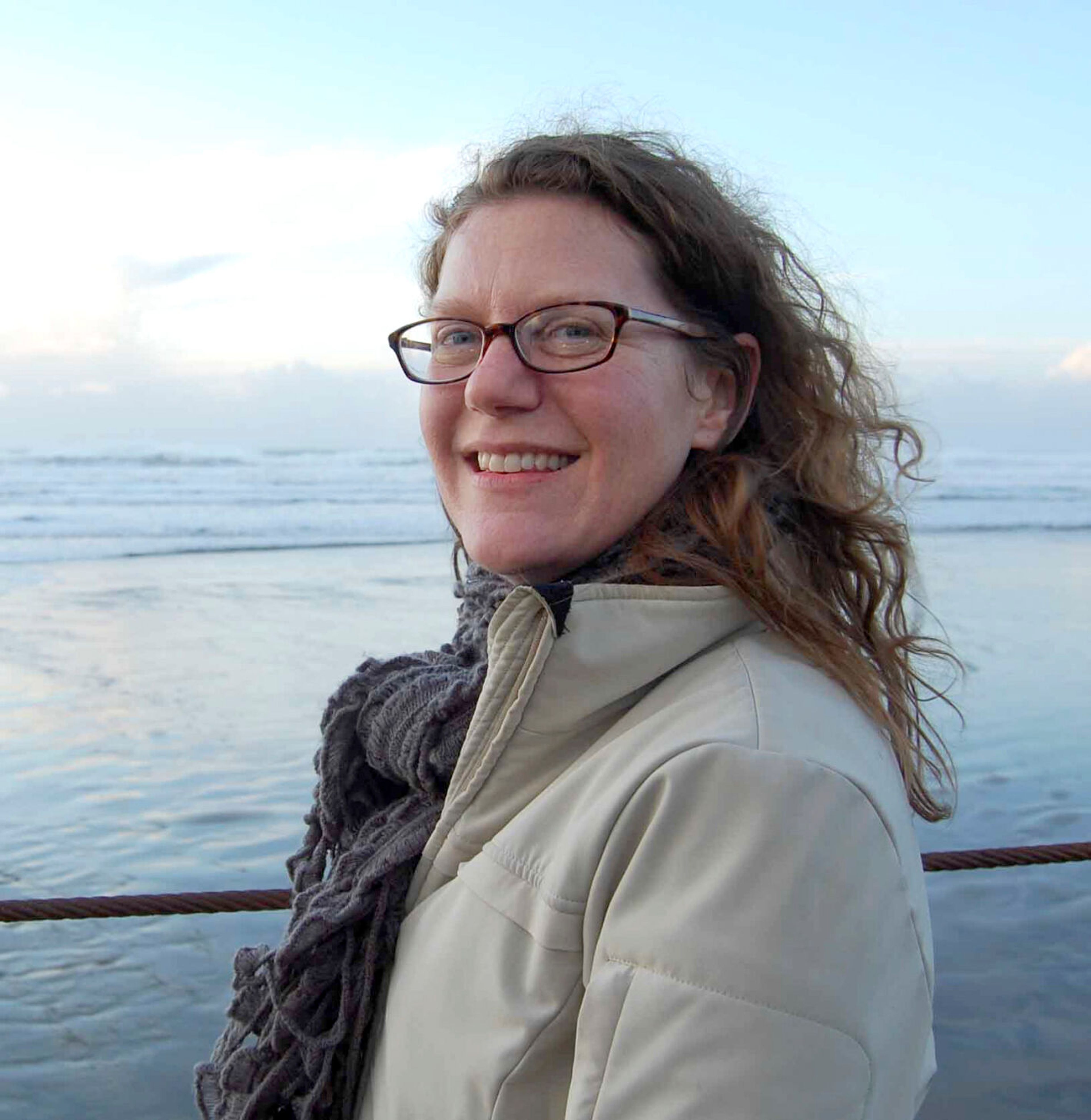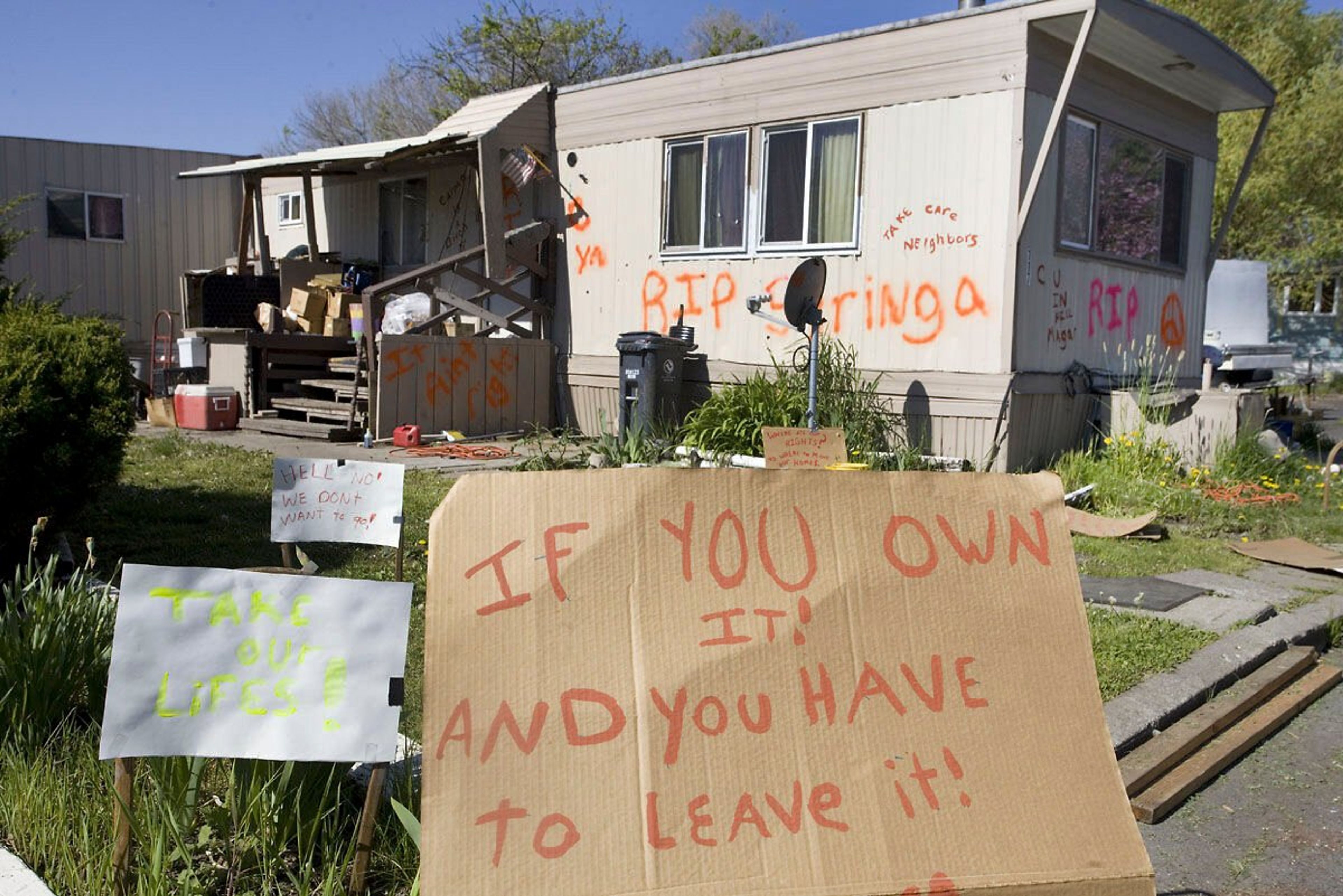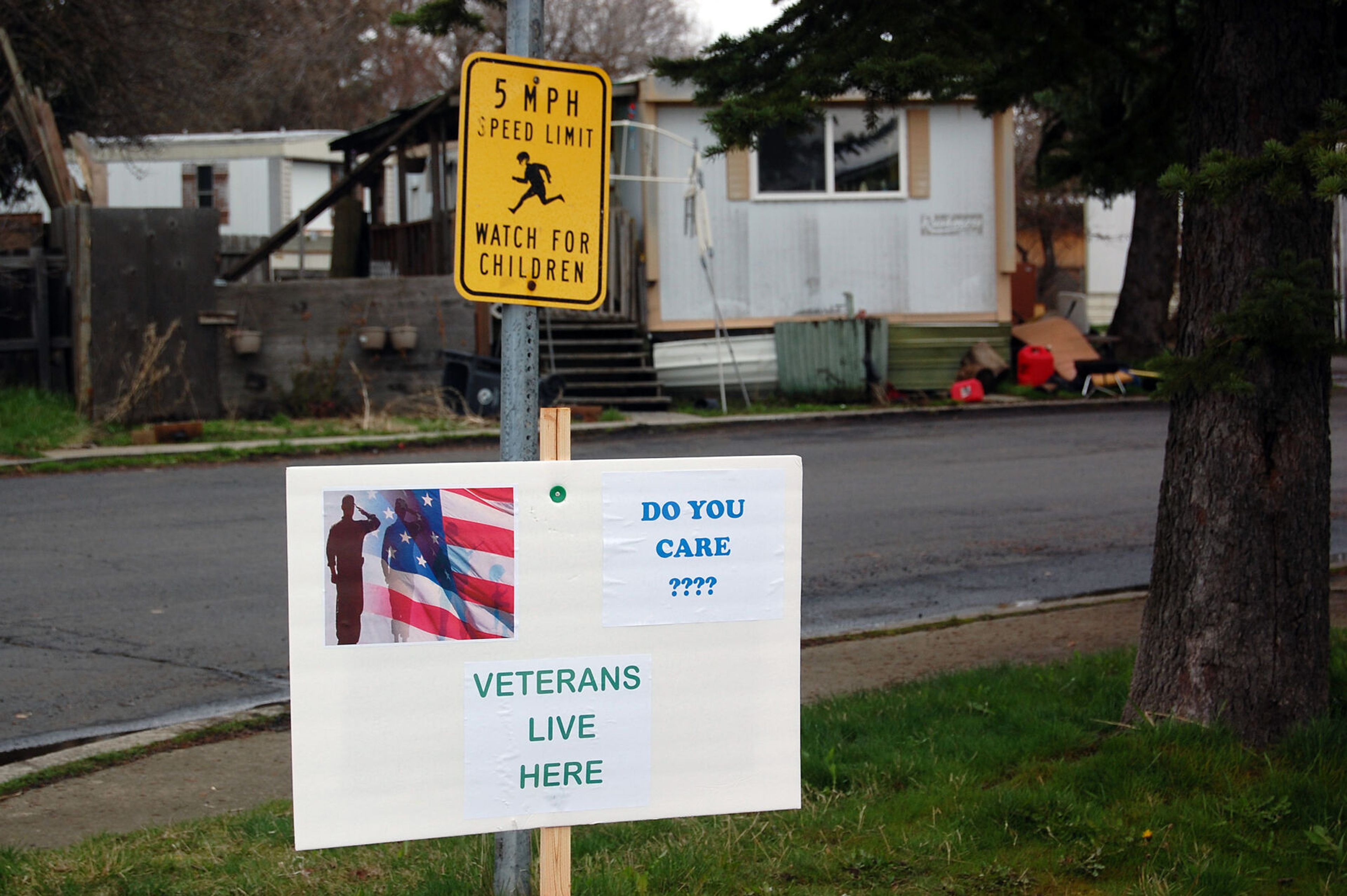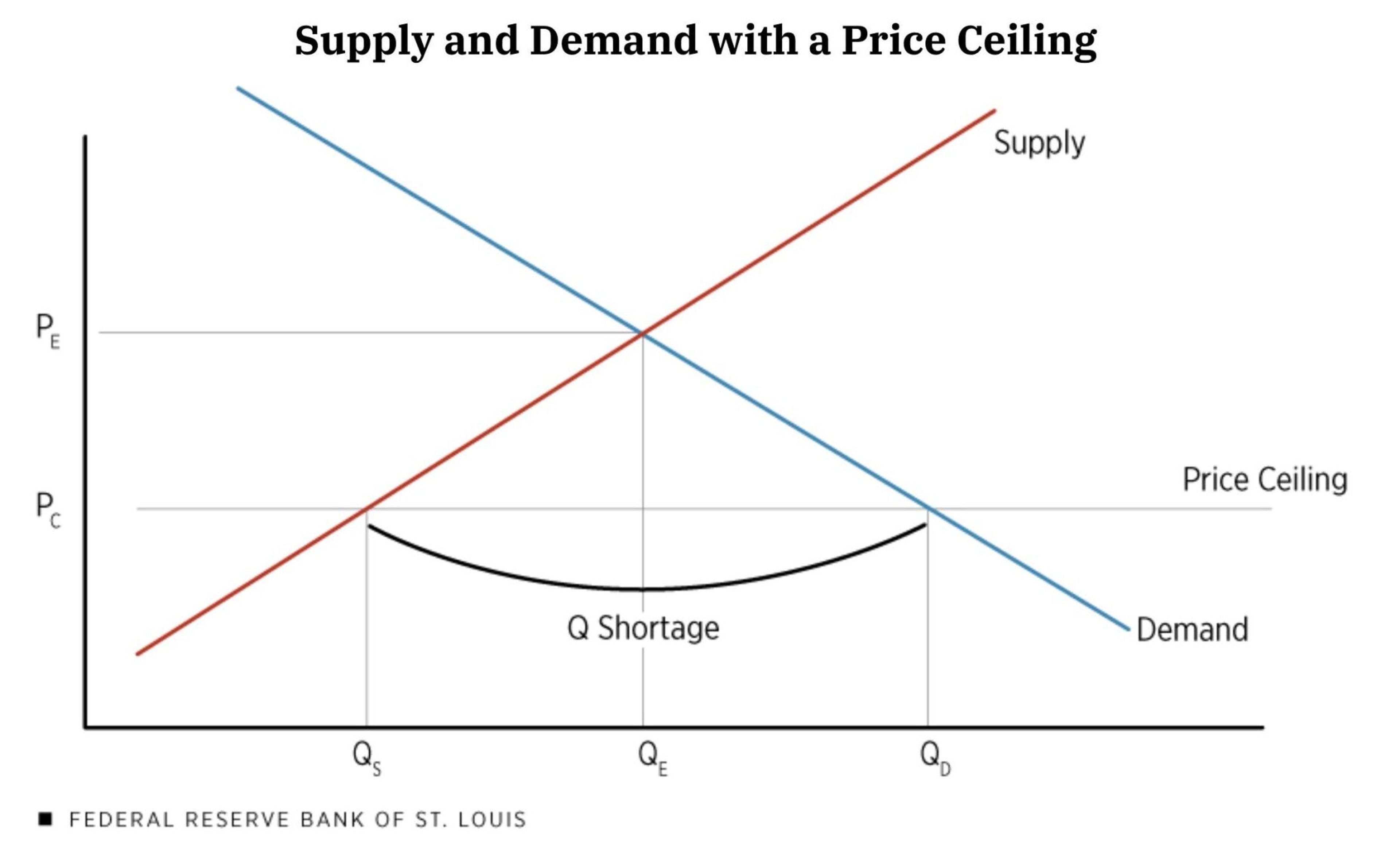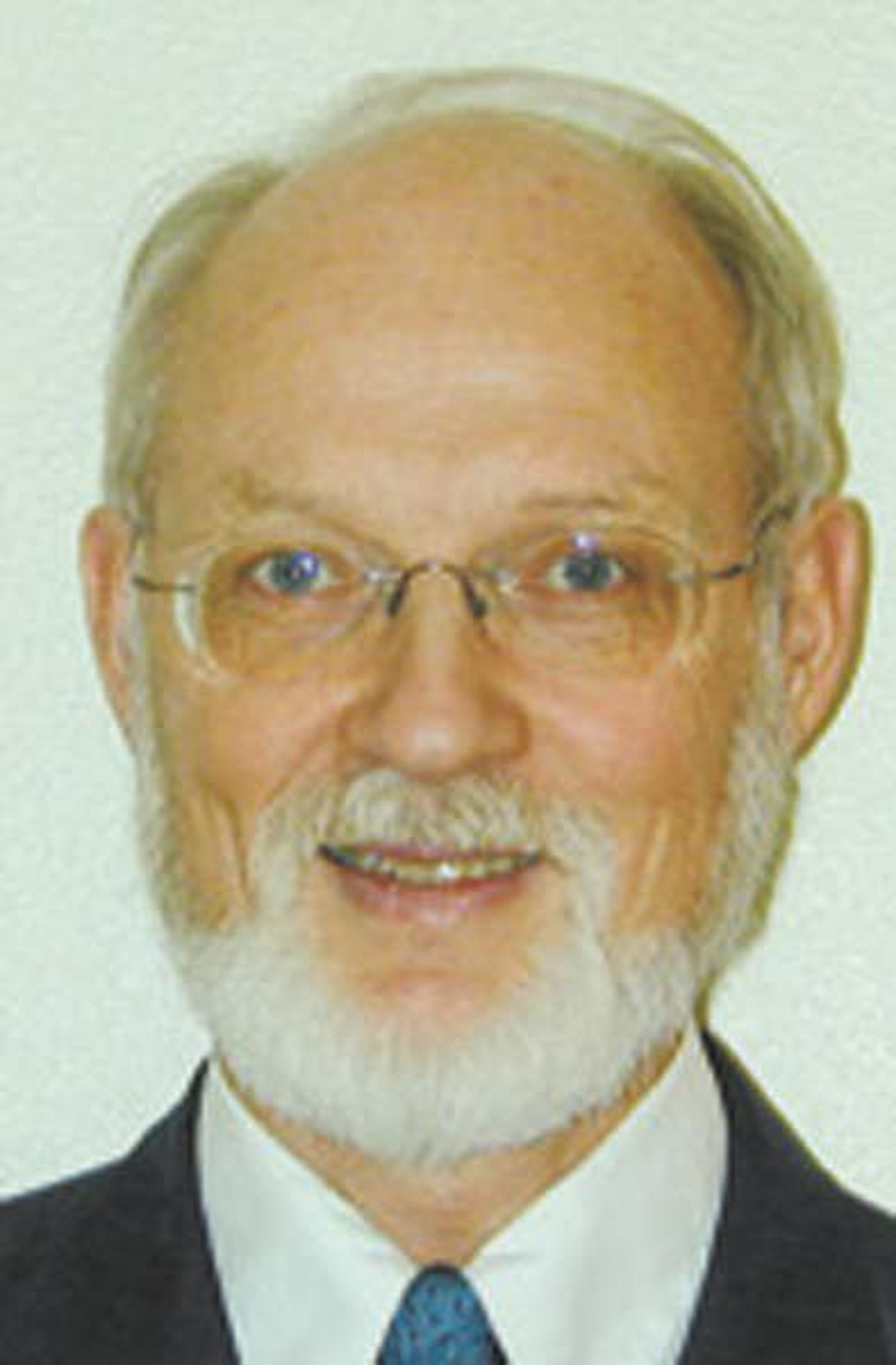Squeezed out of the market
With more houses tied up as investments, it’s become harder for working-class Americans to own homes — which often are their only asset in old age
The Syringa Mobile Home Park was a small community in Moscow plagued by water and sewage issues for decades. Despite a class-action lawsuit from Syringa residents who went without drinkable water for 93 days, the park ultimately closed, leaving residents to find somewhere else to live.
University of Idaho sociology professor Leontina Hormel is writing a book about the issues that led to the collapse of the park. She interviewed multiple park residents, government representatives and attorneys, and followed the water crisis that led to the park residents’ eviction in 2018.
But the book isn’t just about a mobile home park in the Inland Northwest. It’s also about the important role secure housing plays in sustaining communities that help working-class families enjoy good health, social acceptance and productive lives.
Hormel said the idea of owning a house goes beyond the physical walls — adding stability and community are important components of a healthy life.
“A house — the reason it’s important is not just for the status, it’s more and more the only way in which people have something to rely on when they retire. It’s their one asset,” she said.
Priced out of the market
One of the challenges of the modern economy is there are too many incentives for people to treat housing as an investment, she said, stripping it of its main purpose: To provide a stable place to live for families and a means for the working class to acquire wealth.
Housing costs in Idaho have soared despite its reputation of being a more affordable place to live.
Most people are familiar with the proliferation of the “house flipping” reality TV shows in which people buy cheaper “fixer-upper” houses to remodel them and multiply their returns when sold.
Some of the weaknesses of that thinking was apparent in the early 2000s, said Hormel, when the housing market imploded.
“And that was a combination of a couple of instruments ... the predatory lending, which was a means for banks and finance to grow profits by expanding credit to higher-risk families, which in the end disproportionately hurt working-class members, and disproportionately Latino and Black working-class households,” she said.
The expanded credit made those populations vulnerable to financial loss because they couldn’t afford the mortgages, especially when balloon payments were due with higher-risk loans, or subprime loans.
“Another way that there’s upward pressure now in prices is the artificial scarcity created by enabling investors to buy houses, who essentially ‘take cuts’ in front of families waiting in line to purchase their first home,” Hormel said.
Alexander Hermann is one of the lead researchers for the State of the Nation’s Housing 2022 report released by Harvard University this spring. He said investors have moved rapidly into the single-family housing market since the pandemic began.
“And given the extremely limited supply of housing available for sale, these investor purchases can significantly reduce home-buying opportunities. That’s especially true for first-time homebuyers and more moderate-income households,” he said.
Hormel said around her office at the University of Idaho, she has conversations with younger faculty members who don’t know when they’ll ever be able to afford to buy their first home.
She said it is important to not overlook the significance of U.S. households being able to have an asset — that is, a form of wealth they can fall back on for retirement. She added that lack of wealth is what is exacerbating the inequality gap in the United States.
“If it’s affecting people who are privileged in the society, just imagine how much more vulnerability we’re creating for low-income families who are all working class,” she said.
Hormel said not having stable housing can lead to societal dysfunction like poor health, higher crime rates, drug addiction and suicide.
What can be done?
In March, Idaho Gov. Brad Little signed a bill into law to create a state fund for workforce housing. The state Housing and Finance Association will manage the $50 million in American Rescue Plan Act funds to build affordable homes.
Gerald Hunter, president and executive director of the Idaho Housing and Finance Association, said even though $50 million sounds like a lot of money, it won’t be an overwhelming impact by the time those funds are stretched across the state.
“The other answer to affordability is to have the incomes of households that are trying to get into a home go up,” Hunter said. “Here in Idaho, we’ve seen home prices go up so quickly, and incomes haven’t kept pace. And so effectively what’s happening is that the population is falling further behind.”
Hormel thinks society should assess whether housing is about being an investment tool of the wealthy and corporations, or generating wealth for the average family.
Hormel said one solution to the crisis could be rezoning to allow for more high-density housing. Idaho law allows the state Legislature to challenge any community trying to impose a zoning restriction on a developer to build a certain amount of low-income and affordable housing, like tiny homes or mother-in-law apartments.
“Affordable housing communities supported by organizations like LEAP in Boise, or the Moscow Affordable Housing Trust, offer another solution to places who want to expand access to housing,” Hormel said. Rather than being sold along with the house, the land is held in trust to income-qualified tenants to keep the houses affordable.
“We own the land permanently. And there is a rental agreement between the land and the house. And that rental agreement is how we control that it is permanently affordable,” said Nils Peterson, director of the Moscow Affordable Housing Trust. “The goal is home ownership.”
Throughout the Northwest, there are several resident-owned mobile parks. ROC Northwest focuses on building affordable housing through “cooperative ownership” in Washington and northern Idaho.
Residents cooperatively govern, set the rules, and put a pot of money aside so they can invest in the park’s infrastructure and upkeep.
In Colorado, a recently passed law mandates that residents of a mobile or manufactured home community have an opportunity to buy their park before it goes on the market to investors.
“Instead of another investor buying yet another hotel or another apartment building, if we demanded as a community to be given a window of time to know that there’s a possible sale of the property I live in and as a renter, you know, what’s keeping us from demanding that we be allowed first opportunity at purchase?” asked Hormel.
Hormel’s book on the Syringa Mobile Home Park is slated for release in 2023.
This is part of a collaborative series with the Lewiston Tribune and Northwest Public Broadcasting on issues surrounding the Northwest housing shortage.
